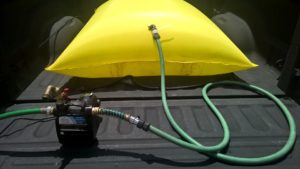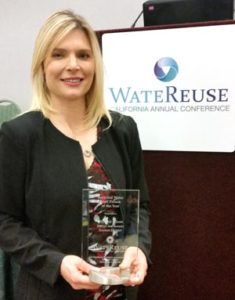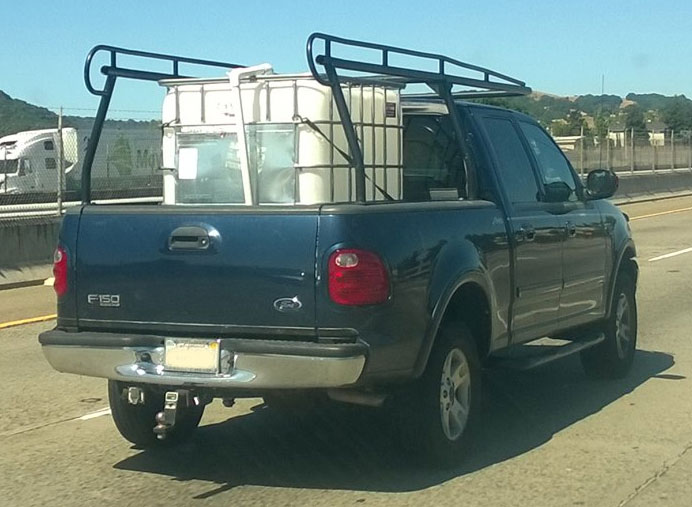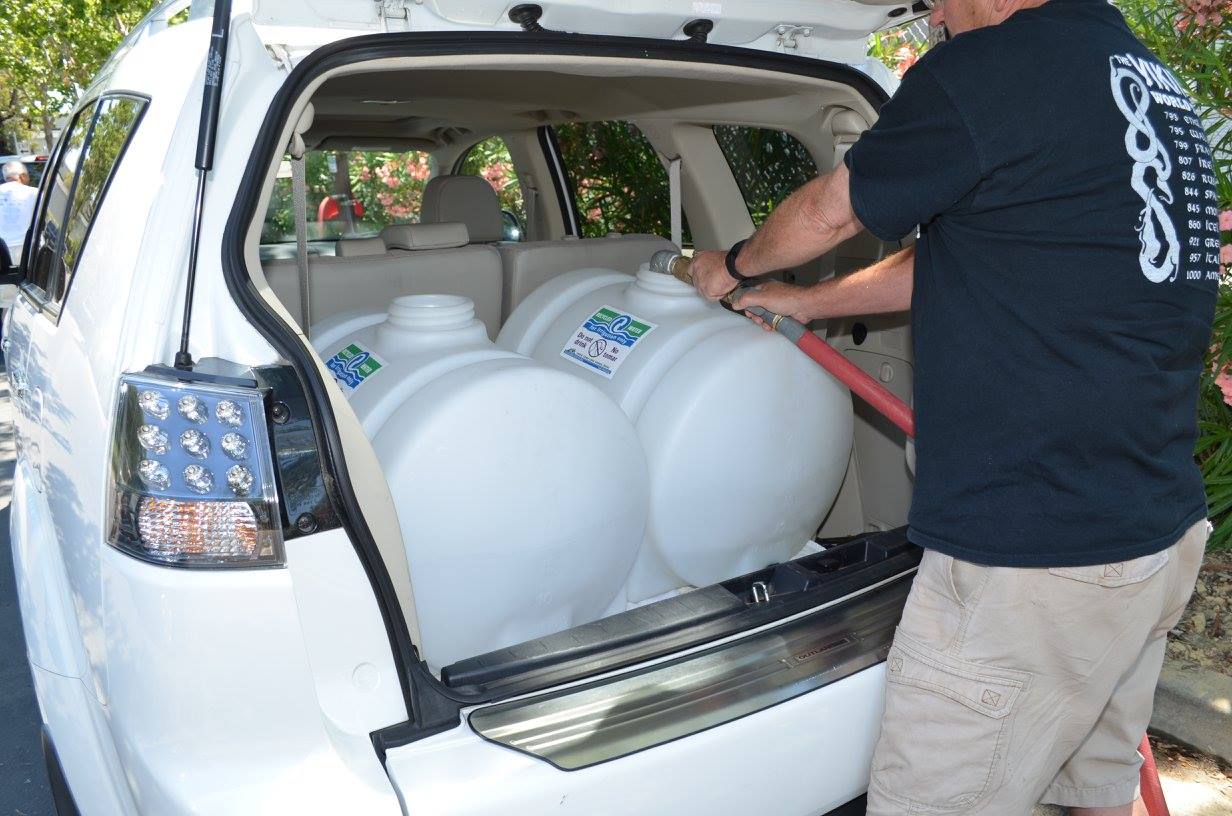
Utility pump connected to 150 gallon water bladder.
By my calculations, I have hauled over 23,000 gallons of recycled water since buying my first tank in 2014. In that span, I have made 159 trips to and from a fill station, driven over 1,100 miles while carrying an extra 1250 pounds in my truck. I have since purchased a new set of tires and what do I have to show for it? My water bill is down 92% from 2013 levels and my drought tolerant yard has never been greener.
I happily haul recycled water because it is the right thing to do.
I am one of over 8,500 registered customers in California who can take up to 300 gallons of recycled water to use at home for landscape irrigation. My 23,000 gallon contribution pales in comparison to the more than 85 million gallons of recycled water hauled by like minded homeowners that want to keep their landscapes alive while we’re being encouraged to let ours die.
There are no restrictions on when you can use recycled water and it won’t affect your water bill. If your community has limits on using your sprinklers 2 days a week, with recycled water you can water 7 days a week. It is all up to you and how much effort you want to put into hauling it.
Why Do I Haul?
I have the means and the motivation to do it. I take pride in knowing I am conserving a limited resource. Most of all, it is the right thing to do.
Every recycled water hauler knows, we don’t haul because it makes economic sense, we haul because it makes environmental sense.
I drive a half-ton truck, purchased a 150 gallon tank and a portable pump to unload my tank with. Last spring, I removed my lawn and converted my front yard to a drought tolerant landscape. My water use requirements with this change were greatly reduced, but I still haul recycled water. Between a thick layer of mulch on the ground, drip irrigation and low water using plants, recycled water helps keep everything lush.
I feel I am doing the right thing for the environment, by taking pride in an industry I work for and being apart of the bigger picture. I can afford to just turn on the tap and run my sprinklers until water flows like rivers down the street but that is not the point.
When faced with California’s epic drought, hauling recycled water is an excellent solution to conserving precious drinking water supplies. Using pristine potable water to keep lawns lush is like adding gold to liquor – it looks good, but really doesn’t have any useful purpose.
Economically – hauling water is very expensive. As I observed last year, it is still cheaper than going to the store, buying a case of bottled water and pouring it on the plants in the yard. The unit cost of the 23,000 gallons of water from the tap equates out to about $96, about as much as I spend to fill my gas tank each week. Every recycled water hauler knows, we don’t haul because it makes economic sense, we haul because it makes environmental sense.
Hauling recycled water is not for everyone, but seeing its value and using it at home, is the first step we as a society need to make, as we move into the future.
I will admit – hauling water is easy for me.
A little history lesson on Residential Recycled Water Fill Stations
If we look back to spring 2014 before Governor Jerry Brown mandated a 25% reduction in water usage, California was suffering from a water shortage due to very lackluster winter rains. Water supplies were getting thin and Dublin San Ramon Services District had an innovative idea to save water and re-use a resource few homeowners knew about, recycled water.
Recycled water hasn’t always been available for residential haulers. We owe its present availability to Stefanie Olson, the 2015 Staff Person of the Year award recipient from the WateReuse Association for her hard work on residential recycled water fill stations. It was her Stefanie that took an idea and made it into a reality, getting state approval and creating a training program that has been mimicked by 24 agencies across California – with more opening soon.
The state of California classifies disinfected tertiary recycled water under Title 22 and has a slew of acceptable uses of the liquid resource that makes recycled water perfect for just about anything. Examples include irrigation for school fields, golf courses, residential landscaping, parks and playgrounds or usage on food crops. It is this kind of recycled water that is available for residential pick up.




Leave a Reply